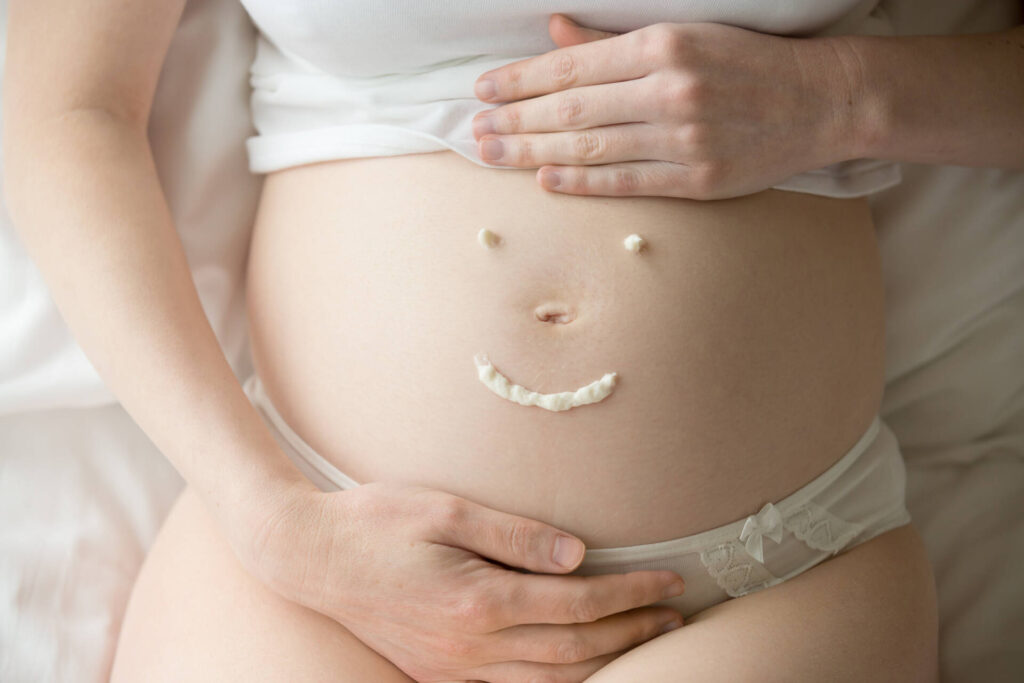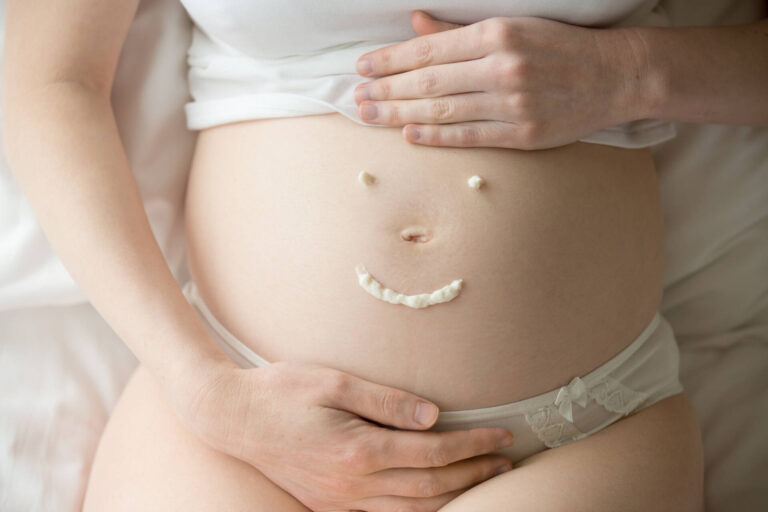
Congratulations on the arrival of your precious little one! Giving birth is a remarkable feat, and now it’s time to focus on your own recovery. Whether your delivery was smooth or had complications, your body has undergone significant changes and requires time to heal. Postpartum recovery is a gradual process that can take months, but don’t worry, you’ll start feeling like yourself again soon. In this comprehensive guide, we’ll provide valuable insights and practical tips to support your postpartum recovery journey.
Rest and Patience: Your Body’s Healing Process
After giving birth, it’s normal to feel frustrated as your body heals at its own pace. Remember to be patient with yourself and allow time for recovery. Rest is crucial during this period as it helps your body regain strength. Take it easy, prioritize self-care, and focus on basic needs like eating nutritious meals, getting enough sleep, and caring for your baby. Your hormones will be fluctuating, affecting your emotions and clarity of thought. If you ever have thoughts of harming yourself or your baby, reach out to someone for help immediately.
Physical Recovery: Paying Attention to Your Body
During the first six weeks after childbirth, pay close attention to your body’s signals and notice any changes as you heal. It’s essential to avoid pushing yourself too hard, as it can hinder your recovery process. Instead, prioritize self-care and nourish your body with healthy foods, staying hydrated (especially if you’re breastfeeding), and getting ample rest. Your body has gone through an incredible journey, and it deserves gentle care and attention during this healing period.
Addressing Common Concerns
Abdominal Pain: Understanding Afterpains
After giving birth, you may experience abdominal pain as your uterus returns to its normal size and shape. These pains, known as « afterpains, » can vary in intensity from dull to sharp. It’s important to note that afterpains can be more noticeable while breastfeeding, as it triggers uterine contractions. Applying heat to the area, such as a heating pad or hot water bottle, can provide relief for many women. Over time, the abdominal pain should improve. However, if the pain worsens or persists, it’s important to reach out to your healthcare provider for further evaluation.
Emotional Well-being: Navigating the Baby Blues
Bringing your baby home is an exciting and joyous time, but it’s also common to experience sudden feelings of sadness, commonly known as the « baby blues. » These emotions are caused by hormonal changes and affect around 70-80% of women. Remember, there’s no shame in experiencing these emotions, and confiding in a trusted friend or family member can provide comfort and support. However, if these feelings persist beyond a few weeks or significantly impact your ability to function, it’s important to seek professional help, as you may be dealing with postpartum depression.
Dealing with Postpartum Constipation
Postpartum constipation is a common concern for many women. It can be caused by pain-relieving drugs received during childbirth, anesthesia, or fear of straining stitches or incisions. To alleviate constipation, ensure you’re drinking plenty of water and consuming fiber-rich foods. If necessary, consult your doctor about prescribing a stool softener to help ease bowel movements. Remember, if you haven’t had a bowel movement within four days after childbirth, it’s important to reach out to your healthcare provider for further guidance.
Managing Hemorrhoids
Hemorrhoids, painful swelling of veins in the rectum, are common during pregnancy and can also occur due to straining during delivery. They can cause discomfort, pain, and itching, particularly after a bowel movement. Applying witch hazel, especially when cooled in the refrigerator, can help relieve the pain and itching associated with hemorrhoids. In most cases, hemorrhoids will shrink over time. However, if you notice persistent or worsening symptoms, it’s important to consult your doctor for appropriate management.
Coping with Hormonal Shifts
Hormonal changes after childbirth can lead to various postpartum symptoms. Increased sweating, especially at night, is common and generally not a cause for concern unless accompanied by a fever, which could indicate an infection. Many new moms also experience temporary hair loss due to hormonal fluctuations. Rest assured, your hair will gradually return to its normal thickness as your estrogen levels stabilize.
Perineum Soreness and Breast Discomfort
Soreness in the perineum, the area between the vagina and anus, is common after childbirth, whether from tearing or an episiotomy. You may experience discomfort in this area for a few weeks. Applying an ice pack for 10 minutes multiple times a day, especially after using the bathroom, can help alleviate pain and reduce swelling. Using a squirt bottle to rinse the perineum with warm water after toileting during the first week postpartum is also beneficial for cleanliness and soothing the area. If soreness persists or you notice signs ofinfection, such as increased pain, redness, or discharge, it’s essential to notify your healthcare provider for further evaluation.
Sore nipples and breasts are common during the initial days of breastfeeding as your body adjusts to the demands of nursing. If the soreness persists beyond a few days, it could indicate an incorrect latch by the baby. Seeking help from a lactation expert or a healthcare provider can provide guidance on improving breastfeeding techniques and ensuring your baby is properly latched. It’s important to note that not all women are able to breastfeed, and using formula is a perfectly acceptable choice for feeding your baby if needed.
Healing Stitches and Incisions
If you have stitches or staples due to a tear, episiotomy, or C-section, proper care is crucial for optimal healing. For a torn or cut perineum, stitches typically take 7-10 days to heal. It’s important to gently clean the area with warm water after each toilet use using a squirt bottle and pat dry. Avoid wiping the area with toilet paper to prevent irritation. Refrain from touching the stitches and closely monitor them for any signs of infection, such as increased redness, swelling, discharge, or fever. If you notice any concerning symptoms, contact your healthcare provider for further evaluation.
For a C-section, the stitches in the skin usually heal within 5-10 days, while the underlying stitches in the muscle layer may take up to 12 weeks. It’s essential to monitor the visible stitches for signs of infection and follow the instructions provided by your healthcare provider regarding wound care. In some cases, staples may be used on the skin, and they can be removed within a few days to a week after delivery. It’s crucial to attend any follow-up appointments and address any concerns or questions you may have about your incision healing.
Lochia: Understanding Vaginal Bleeding and Discharge
After giving birth, it’s common to experience vaginal bleeding and discharge known as lochia. This discharge helps your body eliminate the extra blood and tissue that supported your baby’s growth during pregnancy. Initially, the bleeding may be heavier for up to 10 days and then gradually taper off. Light bleeding and spotting can continue for up to six weeks post-delivery. It’s important to use only sanitary pads during this time, as tampons should be avoided to reduce the risk of infection. Passing some small clots, especially during the first week, is normal. However, if you pass clots larger than a quarter or experience persistent heavy bleeding, it’s advisable to contact your healthcare provider for further evaluation.
Other Postpartum Considerations
Water retention, also known as postpartum edema, may cause swelling in your hands, legs, and feet. This swelling is typically a result of increased levels of the hormone progesterone and should subside within a week after delivery. However, if the swelling worsens or persists, it’s important to discuss it with your healthcare provider.
Immediate weight loss after giving birth is unlikely, and it’s important to have realistic expectations. While you may lose around 6-12 pounds during the birth itself, subsequent weight loss may take time. Losing the remaining baby weight can vary from woman to woman and may take several months, depending on the amount gained during pregnancy. Breastfeeding may assist some women in promoting weight loss, but it’s important to focus on consistent nutrition and avoid becoming frustrated if it takes longer than anticipated to shed the weight. Remember, everyone’s journey is unique, and your body needs time to heal and readjust.
Monitoring Your Health: Potential Risks and When to Seek Help
While postpartum recovery is a natural process, it’s important to stay vigilant for potential complications that can arise even days or weeks after delivery. Trust your instincts and pay attention to your body. If something feels off or you experience any concerning symptoms, it’s crucial to seek prompt medical attention. Here are some potential risks to be aware of:
- Postpartum Hemorrhage: Although rare, excessive bleeding after childbirth requires immediate medical attention. If your bleeding exceeds one pad per hour or if the bleeding increases instead of decreasing, contact your healthcare provider immediately.
- Severe Headaches: Persistent and severe headaches, especially when accompanied by high blood pressure, could be indicative of a potential stroke risk. If you experience severe headaches that don’t resolve with over-the-counter pain medication or if you have high blood pressure, seek medical evaluation promptly.
- Deep Vein Thrombosis: Deep vein thrombosis (DVT) is a relatively uncommon condition that involves the formation of blood clots in deep veins, often in the legs. If you experience leg pain, a muscle strain sensation, redness, or warmth, it’s essential to contact your healthcare provider. Untreated DVT can lead to life-threatening complications if the clots break away and travel to the lungs.
- Postpartum Preeclampsia: Postpartum preeclampsia is a rare condition that can develop within 48 hours after childbirth or as late as six weeks after delivery. Similar to preeclampsia during pregnancy, it causes high blood pressure and organ distress. Watch for symptoms such as severe headaches, swelling, blurred vision, upper right body pain, and suddenweight gain. If you experience any of these symptoms, contact your healthcare provider promptly for further evaluation and appropriate management.
When to Seek Medical Attention
During your postpartum recovery, it’s crucial to be aware of warning signs that warrant medical attention. If you experience any of the following symptoms, contact your healthcare provider:
- Heavy vaginal bleeding that soaks more than one pad per hour or increased bleeding each day instead of decreasing.
- Passing clots larger than a quarter.
- Chills and/or a fever of more than 100.4°F.
- Fainting or dizziness.
- Changes in vision or persistent severe headaches.
- Painful urination or difficulty urinating.
- Vaginal discharge with a strong odor.
- Heart palpitations, chest pain, or difficulty breathing.
- Persistent vomiting.
- Signs of infection in the incision site, such as redness, weeping pus, or swelling.
- Worsening or new abdominal pain.
- Sore breasts that are red or feel hot to the touch.
- Leg pain with redness or swelling.
- Increase in swelling that seems abnormal.
Remember, your healthcare provider is your best resource for assessing your symptoms and providing appropriate guidance and care.
Frequently Asked Questions (FAQs)
To further support your postpartum recovery journey, here are some commonly asked questions that may provide additional insights:
1. How long until I will feel like myself again? Postpartum recovery is a gradual process, and the timeline varies for each woman. While you may start feeling better after 6-8 weeks, it can take several months for your body to fully recover. Be patient and prioritize self-care during this period.
2. Why am I still retaining water? Water retention, or postpartum edema, is a common occurrence due to hormonal changes. It should gradually subside within a week after delivery. However, if the swelling worsens or persists, consult your healthcare provider for further evaluation.
3. How many calories should I eat while breastfeeding? While breastfeeding, your body requires additional calories to support milk production. The exact number of calories varies, but it’s generally recommended to consume an additional 300-500 calories per day. Consult a healthcare provider or a registered dietitian for personalized guidance.
4. When can I begin exercising? The timing for resuming exercise after childbirth varies depending on individual factors and the type of delivery. It’s essential to consult your healthcare provider for personalized guidance. Generally, light exercises, such as gentle walks, can be started soon after delivery, gradually progressing to more intense workouts over time.
5. How long should I wait before having sex again? The timing for resuming sexual activity varies for each woman and depends on factors such as healing, comfort, and personal preference. It’s important to have an open and honest conversation with your partner and consult your healthcare provider for guidance tailored to your specific situation.
6. Can I get pregnant while I’m breastfeeding? While breastfeeding can provide some natural contraception, it’s not a foolproof method. It’s still possible to get pregnant while breastfeeding, especially as your baby starts to consume less breast milk. If you want to avoid pregnancy, consider using additional forms of contraception and consult your healthcare provider for advice.
7. Why is my hair falling out? Postpartum hair loss is a common occurrence and is caused by hormonal fluctuations. Rest assured that this is temporary, and your hair will gradually return to its normal thickness as your hormone levels stabilize.
8. Are there foods I shouldn’t eat while breastfeeding? While breastfeeding, it’s generally recommended to maintain a well-balanced diet that includes a variety of nutritious foods. However, some babies may be sensitive to certain foods through breast milk. If you notice any adverse reactions in your baby after consuming specific foods, consult a healthcare provider or a lactation expert for further guidance.
9. Why aren’t I losing weight? Losing weight after pregnancy can be a gradual process, and it’s important to have realistic expectations. Factors such as individual metabolism, lifestyle, and breastfeeding can influence weight loss. Focus on consistent nutrition, engage in regular physical activity as advised by your healthcare provider, and be patient with your body.
10. What are my options for birth control? There are various contraceptive options available, and the best choice depends on your individual needs and preferences. Consult your healthcare provider to discuss the most suitable birth control methods for you, taking into consideration factors such as breastfeeding and future family planning goals.
11. Will my breasts go back to normal? Breast changes are common during pregnancy and breastfeeding. While your breasts may not return to their exact pre-pregnancy appearance, they will undergo natural changes over time. Wearing a well-fitted supportive bra and maintaining a healthy lifestyle can help support breast health.
12. Why do I have no interest in sex? Fluctuating hormones, fatigue, and the demands of caring for a newborn can impact your interest in sex. It’s important to have open communication with your partner and prioritize self-care. If concerns persist, discussing them with your healthcare provider may provide additional insights and support.
Conclusion
Your postpartum recovery journey is unique, and it’s essential to give yourself time and grace as your body heals and adjusts. Remember to prioritize self-care, seek support when needed, and consult your healthcare provider for personalized guidance. With patience, rest, and proper care, you’ll gradually regain strength and feel like yourself again. Enjoy the precious moments with your baby and embrace the journey of motherhood.




